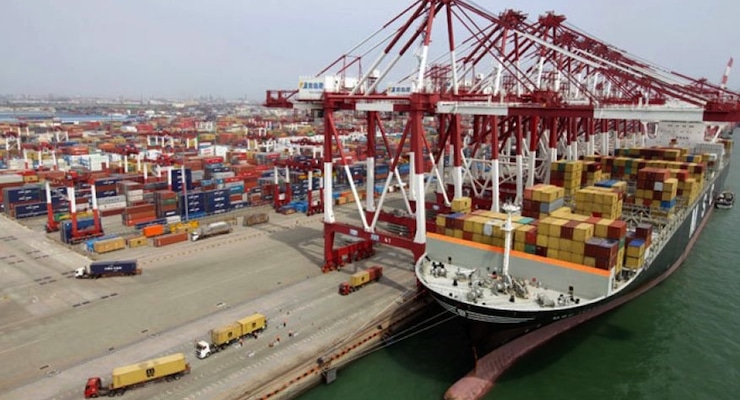

The latest import prices and export prices, including data and reports. (Photo: REUTERS)
October Import Prices fell 0.5%, a much larger decline than 0.1% forecast by economists polled by The Wall Street Journal ahead of the Labor Department report. Further, October export Prices fell 0.2%, matching estimates, but prices for imported goods fell for the fourth straight month in October.
Overall import prices are down 10.5% from a year earlier, underscoring weak inflation pressures, low oil prices and a relatively strong U.S. dollar. The year-over-year figure has declined for 15 consecutive months.
October’s decline was broad-based and across-the-board, with prices for petroleum and natural gas, industrial supplies such as paper and metal, food, autos and capital goods all falling far more than economists’ expectations.
Petroleum import prices are down a whopping 48% from a year ago, though the index for non-fuel imports was down 3.2% over the past year, as well. That’s the biggest decline in more than six years, as the non-fuel index hasn’t posted a monthly advance since July 2014.
Federal Reserve policy-makers at the Federal Reserve Open Markets Committee have delayed raising interest rates from near zero largely due to worries about when inflation would reach the central bank’s 2% target. However, it’s been below that mark for more than three years and policy-makers have backed themselves in a corner for a end of the year hike.
In fact, Fed Chairwoman Janet Yellen and other officials have maintained expectations for the hike.
“Inflation is anticipated to remain near its recent low level in the near term but the Committee expects inflation to rise gradually toward 2% over the medium term as the labor market improves further and the transitory effects of declines in energy and import prices dissipate,” the central bank’s policy committee statement said last month.
U.S. export prices fell 0.2% in October from the prior month. Export prices are down 6.7% year-over-year. Unlike many other price gauges measured by the government, import prices are not seasonally adjusted.
Meanwhile, the Commerce Department said last week that imports from China hit a record high in September, pushing the politically sensitive U.S.-China trade deficit to an all-time high of $36.3 billion. That was up 3.8% from August.




